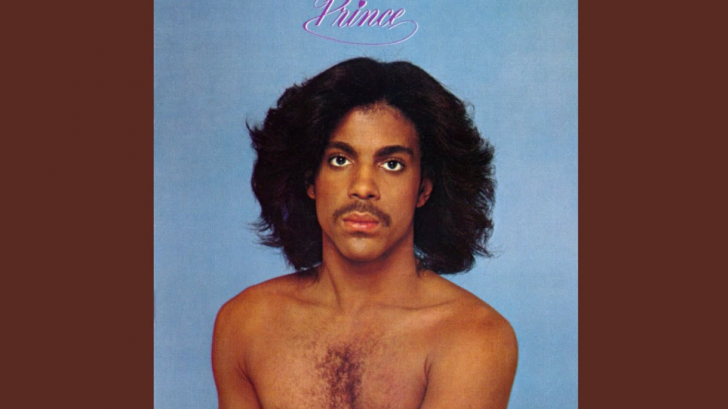Sometimes, in the music industry, artists decide to take control of their destinies and create their own record labels. They do it for artistic freedom, independence, and the desire to nurture new talent. These rockstars prove that when you want something done right, sometimes, you have to do it yourself.
The Beatles: Apple Records
View this post on Instagram
In 1968, The Beatles embarked on an innovative venture by forming Apple Records. Beyond being a platform for their music, Apple Records provided a home for their solo projects and even artists like James Taylor, Billy Preston, Badfinger, and more. Paul McCartney emphasized their intent to break free from profit-driven motives, saying, “We’re in the happy position of not really needing any more money. So for the first time, the bosses aren’t in it for profit.” Their goal was to support fellow artists, exemplifying their commitment to artistic freedom within the industry.
Prince: Paisley Park Records, NPG Records
View this post on Instagram
Prince’s journey with record labels took a unique turn in 1985 when he founded Paisley Park Records, which initially collaborated with Warner Bros. Records. However, a dispute over ownership and creative control led Prince to establish NPG Records, focusing primarily on his music. This bold move allowed him to regain command over his artistry and build a legacy that continues under the management of his estate.
The Rolling Stones: Rolling Stones Records
View this post on Instagram
When the Rolling Stones’ partnership with Decca Records concluded, they established Rolling Stones Records. Their main aim was to safeguard control over their music, but the label also released albums from individual members and artists like Jimmy Miller, John Phillips, and Peter Tosh. Their commitment to artistic independence and creative freedom shone through this label.
Led Zeppelin: Swan Song Records
View this post on Instagram
Led Zeppelin, frustrated by record company interference, decided to create Swan Song Records in 1974, a label dedicated to nurturing artists without the constraints imposed by major labels. Their vision was to provide a haven for musicians to fulfill their creative potential. This move allowed them to transcend industry limitations and support diverse artistic expression.
Jack White: Third Man Records
View this post on Instagram
Jack White’s brainchild, Third Man Records, began during the ascent of The White Stripes but truly blossomed in the late 2000s. White’s unique approach prioritized artistry over profits, earning Third Man Records a reputation for artistic integrity. In White’s words, “We have almost no consideration for profit, and I think that’s why we are highly profitable.” This commitment to the craft has made Third Man Records a hub for innovative music.
John Prine: Oh Boy Records
View this post on Instagram
In 1980, John Prine, along with his manager Al Bunetta and friend Dan Einstein, founded Oh Boy Records after parting ways with Asylum Records. Oh Boy’s inception marked a fresh start for Prine, enabling him to release music independently while also reissuing classic works by legendary country artists. Despite offers from major companies, Prine chose to remain independent, a testament to his dedication to artistic autonomy.
Ray Charles: Tangerine Records
View this post on Instagram
Ray Charles was an early trailblazer in establishing his own record label, Tangerine Records, in 1962. While he didn’t release his own music through the label until 1966, he paved the way for artists seeking creative control. Tangerine Records offered a platform for artists like the Ohio Players, Ike and Tina Turner, and Jimmy Scott, contributing to a diverse musical landscape.
Frank Zappa: Various Labels
View this post on Instagram
Frank Zappa’s unorthodox approach to the music industry led him to create several labels, including Bizarre, Straight, DiscReet, Zappa, and Barking Pumpkin. Zappa embraced the “entrepreneurial spirit” often avoided by the industry, allowing him to release not only his music but also albums by Tim Buckley, Ted Nugent, Alice Cooper, and others. His dedication to pushing boundaries and taking risks left an indelible mark on the music world.
Oasis: Big Brother Recordings
View this post on Instagram
After the dissolution of Creation Records, Noel and Liam Gallagher formed Big Brother Recordings in 2000. The label primarily focused on releasing Oasis’ music in the UK and Ireland. Additionally, Noel Gallagher was behind Sour Mash Records. Big Brother reissued Oasis’ singles and albums, ensuring the band’s creative control and artistic direction.
Trent Reznor and Nine Inch Nails: The Null Corporation
View this post on Instagram
In 2008, Nine Inch Nails left Interscope Records and established The Null Corporation. Trent Reznor’s decision to go independent allowed him to exercise full creative control. Reznor highlighted the advantages of self-releasing, stating, “The great part of self-releasing has been controlling our own destiny.” This move enabled him to steer his musical career on his terms.
Metallica: Blackened Recordings
View this post on Instagram
In 2012, Metallica launched Blackened Recordings to regain complete ownership of their music. Drummer Lars Ulrich emphasized their pursuit of control, saying, “It’s always been about control for us as a band.” Forming Blackened Recordings granted them absolute autonomy over their creative destiny, a testament to their commitment to their craft.
Elton John: The Rocket Record Company
View this post on Instagram
Elton John’s Rocket Record Company, initiated in 1973, served as a platform for his music and also provided opportunities for other talented artists. Elton’s intention was to share the success he had achieved with emerging musicians. Stuart Epps, Rocket’s first employee, recalled, “Elton’s career was roaring, and he wanted to put something back by signing artists to his label.” The Rocket Record Company embodied Elton John’s commitment to fostering artistic talent.
Pearl Jam: Monkeywrench Records
View this post on Instagram
After parting ways with J Records in 2009, Pearl Jam founded Monkeywrench Records to regain creative control. This move allowed them to navigate their musical journey independently, free from the constraints of major labels.

